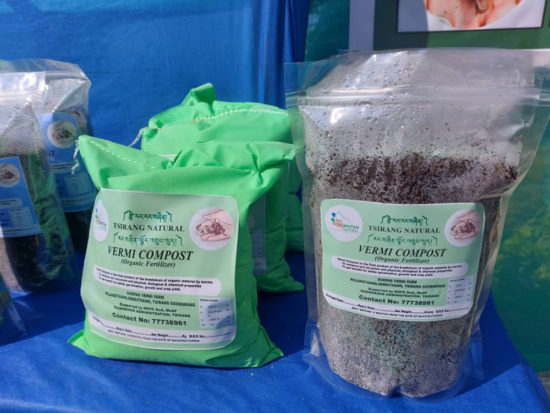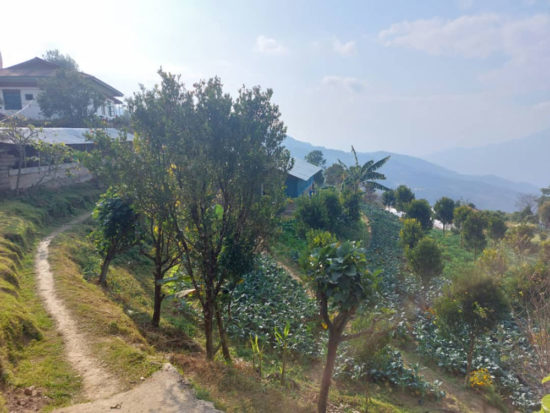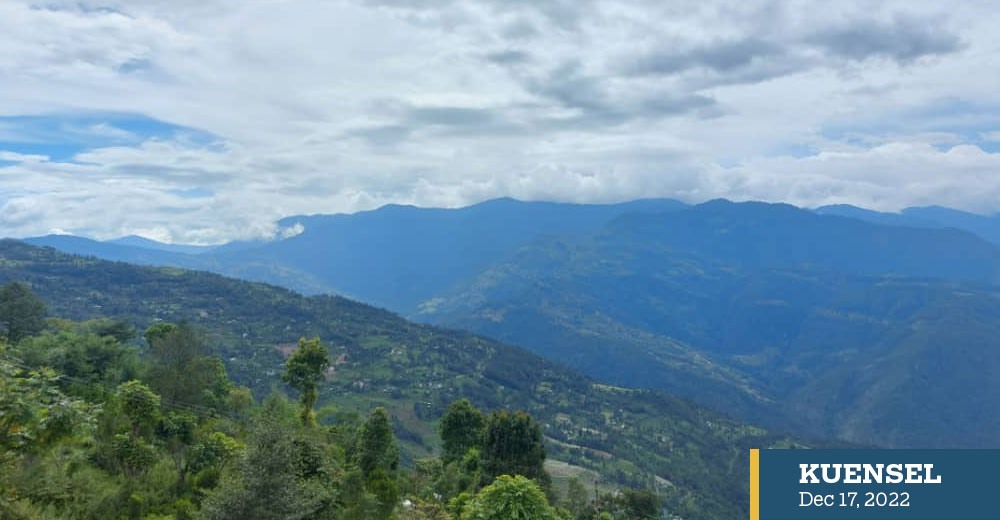Choki Wangmo | Tsirang
Bhutan’s 100 percent organic dream has been pushed to 2035.
As an agrarian society, local organic products are high in demand in the country.
Until recently, “organic product” for me was a bit of an ambiguity. Every farm produce, I thought, was organic.
What does an exclusive organic farm look like?
Phurba Moktan’s farm in Riserbo, Tsirang, has all the components of an organic farm. Recently inaugurated as an organic hub, his five-acre farm will serve as an educational or organic training centre for interested farmers, researchers, and students.
Located about 20 minutes’ drive towards Mendrelgang from Damphu, the farm is equipped with biodigester, azolla and water harvesting tank, greenhouse, zero energy cool chamber, compost shed, and vermiculture production house.
Phurba Moktan and his family is elated with the new facilities built with the help of the dzongkhag agriculture sector. Motivated by the prospects, he thinks farming would be easier and lucrative.
A determined man in his prime, he brought all his land under commercial vegetable cultivation four years ago. “We used manure from the poultry and dairy farms in the past. I am particularly excited about vermicompost production.”
Organic farming, I think, is knowing the land, adapting to the changing climatic conditions, making use of the available resources and ensuring the sustenance of land. The rejuvenation of the land occurs simultaneously.
Biodigester at the organic hub, for example.
In layman’s language, it is the collection of cow urine. A cowshed is connected to a tank where cattle urine is collected and then filtered and mixed in another tank. According to the needs in the farm, the mixture is sprinkled through sprinklers across the farm. Such mixtures are used as manures and are believed to keep away pest and diseases.
It is similar to azolla tank. Azolla, a moss-like tiny plant, is collected in a tank and sprayed in the field to increase the amount of nitrogen in the soil.
Vermiculture production uses earthworms to turn organic wastes into a high-quality compost.
At the organic hub, two types of worms—red wringgler and African Night Wringgler—are used in the production. The worms are introduced in a worm nursery (banana stem and cow dung), culture bed and is left to turn into a mature compost. Once it is matured, it is sieved in a machine and is ready to be used as a compost. It takes five months to produce 800-900kgs of vermicompost.



The hub is expected to produce eight different types of organic manure, which according to the agriculture officials, have greater impact on improving soil structure and increasing the soil’s ability to retain nutrients and water. The manures will be tested on the farm before marketing.
The zero-energy cool chamber, a post-harvest technology, was also installed in the farm. It can be used for storing farm produce.
Assistant dzongkhag agriculture officer, Kinzang Chophel, said: “Through this hub, we hope to encourage our farmers to increase crop and vegetable production using organic manures. If our youth are interested to venture into organic farming, we can help them acquire skills through establishing such centres.”
Known as the vegetable capital, Tsirang is one of the highest producers of vegetables in the country. Last winter, the dzongkhag produced 3,700 metric tonnes of winter vegetables.
With such branding, dzongkhag agriculture officer, Dorji Gyeltshen, said that people visit the dzongkhag for research and study tours on organic farming but without an all-inclusive organic hub, it was challenging.
Dzongdag Sonam, at the inauguration on December 14, ensured marketing support.
Six farmers’ groups were awarded the organic certification on that day.
The National Organic Flagship Programme, and Green Climate Fund and Rapid Financing Facility under the United Nations Development Programme supported the project. The hub was built at the cost of more than Nu 3 million.
As of 2020, Bhutan had achieved about 10 percent in organic agriculture production with just about 545 hectares of cropland (less than 1 percent of total arable land) certified organic.
The country today has two internationally certified products, lemon grass and essential oil produced by BioBhutan and 20 products that are certified by local organic assurance system.
Gasa has been fully organic since 2004.


